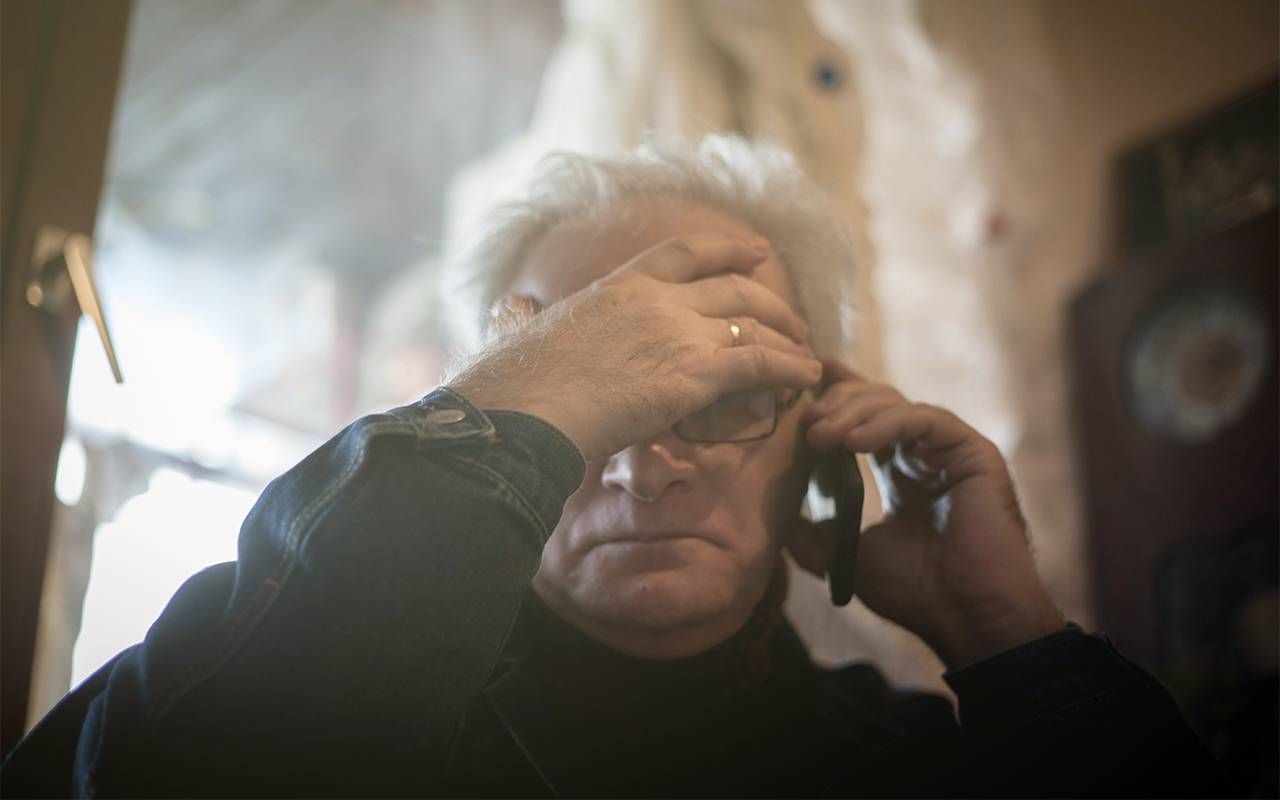When A Parent Apologizes to Their Estranged Adult Child
For my father and me, forgiveness was a process that came in fits and starts. Apologies aren't miracles but they can open a door.
Apparently, parents apologizing to their estranged adult children doesn't happen often. I certainly never expected an apology from my dad. But that's what happened. In 35 years, we'd seen each other no more than a half dozen times. So, when I got his letter, I found I wasn't ready.

Why My Dad and I Split
It's difficult to convey such a complicated situation succinctly, but essentially our family imploded when I was thirteen. My mom left us and my dad's temper, always volatile, got quicker and sharper and landed on me — his oldest daughter.
My mom left us and my dad's temper, always volatile, got quicker and sharper and landed on me—his oldest daughter.
None of us knew how to go on. For years, life was chaotic. My parents fought with each other, cycled through new destructive intimate relationships, and my siblings and I shuttled between them in different combinations based on the crisis of the day.
To me, they'd both gone crazy. And they were making me nuts, too. I needed school. Learning was my lifeline, my future and who I most deeply am. So, when my dad insisted that I quit high school in my senior year and go to work in a factory, I refused. I had to save myself. I moved into my own apartment and he refused to sign financial aid paperwork for college, leaving me on my own from then on.
My Dad's Apology Unsettled Us
How do you even begin to bridge such a decades-long chasm? We didn't have a playbook. After my mom's funeral in 2013, my dad sent me an apology letter. Without thinking, I'd prompted it. He'd tried small talk with me at the funeral reception but when you're grieving it's tough to stay superficial. You can't just drop into my life and act like we chat every day, I wanted to scream.
I'd managed to create a solid, stable, personal and professional life for myself and, though it took me twenty years, earned college degrees. I'd be betraying myself — discounting my own struggles and hard history with him — if I let him ignore that and his role in it so he could pretend he had some relationship with his daughter. So, after the reception, I angrily told my siblings, if he wants a relationship with me, he can apologize. But I never dreamed he would.
I never anticipated that my dad's apology would require something of me.
Apologies, I found, don't just settle things. I guess I thought if a parent admits they hurt you and says they're truly sorry, the emotional residue would just wash away. We'd never need to speak of the injury again. Instead, my emotions went haywire when I got my dad's letter. Sorrow, fear, anger, empathy, longing, regret — a complex stew, its ingredients difficult even to identify.
I wrote back to him and then when we talked by phone, I realized his written apology wasn't enough even for him. He apologized again for not helping me go to college. Then I was shocked when he asked what else he'd done to drive me away and was surprised at my reluctance to answer. Memories of him hitting me as a child rose up and made me queasy. I'd put that away a long time ago and didn't want to speak it. But he needed to clear the air.
What's the Right Thing to Do?
I never anticipated that my dad's apology would require something of me. But, in his letter he asked me to forgive him. He didn't try to excuse or justify his behavior, just hoped that I could. That sent me into a tailspin. My life was good. I was successful and content. But that came about through my own grueling efforts and despite what felt to me like his attempts to destroy me.
When he said he was proud of me, it even raised my ire. By what right do you get to be proud, I thought. At the same time, I didn't want his pain to go on. How could I forgive him? How could I not?
At one point we just acknowledged, it's hard to talk when we don't really know each other.
For me, his request for forgiveness was a prickly humane and moral dilemma. Typically, there's a natural bond between parents and children that often includes reciprocity. But with a nearly-severed bond, what do I owe my dad? He provided the basics — food, clothing and shelter, yet what he was asking of me was emotional, even spiritual. Then I thought, what does it cost me?
I have a strong, loving home life. He can't physically hurt me anymore. And there are no amends he can make. What's the right thing to keep my conscience at peace? That was the most difficult to weigh. The answer became clear when I thought, if a stranger needed something from me that I could give and I was the only one who could give it, would I do it? Yes, I would. So, we had to find a way.
Forgiveness as a Process
In my late teens and twenties, survival and anger fueled my staying away from my dad. In my thirties and forties, he'd become irrelevant to my life. Then, he became a stranger. Consequently, we had outdated images of each other. In his apology letter he remembered me as his little girl riding in the tank truck with him collecting milk from dairy farms and driving the tractor. He didn't know me as an adult. When I received his letter, I'd thought — this isn't the man I know. Maybe he's changed. So, we had to get to know each other.
As it turned out, we had about eight years — in fits and starts. We talked by phone occasionally, sometimes awkward conversations as we struggled to find things to say when our interests and lives were so different. At one point we just acknowledged, it's hard to talk when we don't really know each other. Yet, neither of us gave up.
I can't pinpoint when forgiveness happened in our play-it-by-ear process.
In fact, stubbornness, we realized during a light-hearted standoff, is a trait we share. And it's not the only one. Seeing ways we're alike helped re-establish family feeling.
My dad died in October 2021 at the age of 83. As I re-read some of my letters, I see I asked him a mountain of questions. In those early years when I was struggling to support myself and get my life on track, I'd devoured self-help books, social science, philosophies, religions, anything that might help me make sense of what happened to our family and understand my dad. But that approach could only go so far.
Our conversations helped fill in holes. Learning more about him, the circumstances he grew up in, what it was like for him when his wife left, and the rationale for decisions he made didn't excuse or even satisfy, but I began to see him as a person first and a parent second.
I can't pinpoint when forgiveness happened in our play-it-by-ear process. Along the way there were bouts of frustration and flare-ups of pain yet a subtle lightening, too. Surprisingly, I even began remembering amusing and joyful childhood events. Before, when I recalled my early years, they were largely a mass of gray. Forgiveness, I found, freed us both.
Given our history and how much of each other's lives we missed, mending the relationship could only go so far. Apologies aren't miracles. But they do open a door. Stepping through it together, at least we know we tried.


